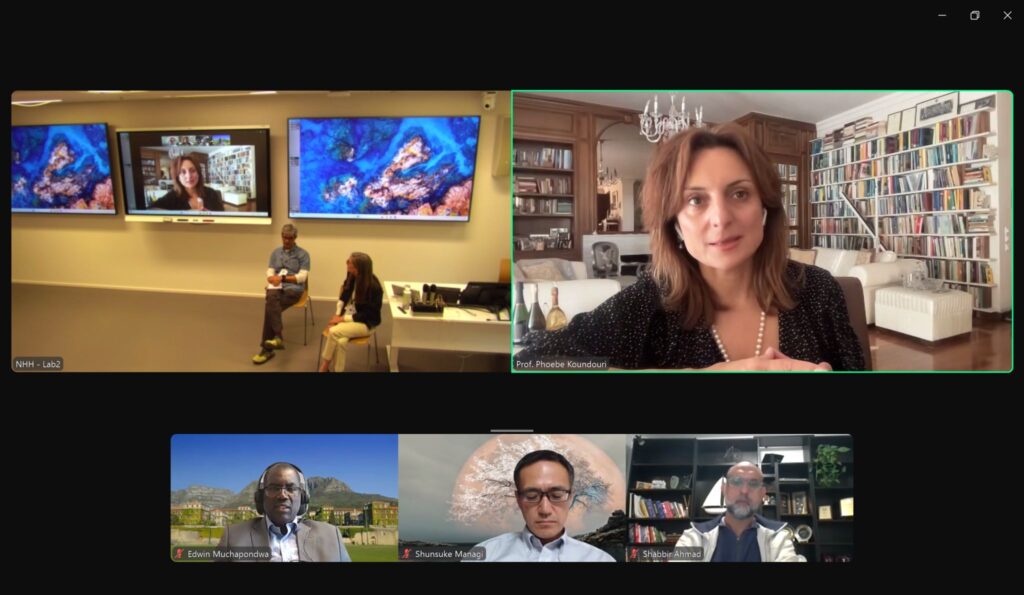Prof. Phoebe Koundouri had the pleasure of co-chairing, together with Prof. Simone Borghesi (President of the European Association of Environmental and Resource Economists – EAERE), an important session organized by the World Council of Environmental and Resource Economists Associations (WCEREA) on “Critical Minerals and the Just Clean Energy Transition.”
As the clean energy race accelerates, the demand for minerals such as lithium, cobalt, and rare earths raises urgent questions about justice, equity, and sustainability. The session brought together leading scholars to address these challenges from multiple regional and disciplinary perspectives.
The panel featured diverse perspectives from five continents:
-
Prof. Managi Shunsuke, Kyushu University (Japan)
-
Dr. Shabbir Ahmad, University of Queensland (Australia)
-
Prof. Subhrendu Pattanayak, Duke University (USA)
-
Prof. Edwin Muchapondwa, University of Cape Town (South Africa)
-
Prof. Aude Pommeret, Université Savoie Mont Blanc (France)
Each speaker contributed valuable insights on managing the clean energy transition in a way that avoids replicating harmful extractive practices and instead promotes inclusion, resilience, and long-term development.
The World Council of Environmental and Resource Economists Associations (WCEREA), chaired by Prof. Phoebe Koundouri, brings together the Asian Association of Environmental and Resource Economics (AAERE), the Association of Environmental and Resource Economists (AERE), the African Association of Environmental and Resource Economists (AFAERE), the European Association of Environmental and Resource Economists (EAERE), and the Latin American Association of Environmental and Resource Economists (LAERE). The council fosters global collaboration and coordinates key initiatives, including the World Congress of Environmental and Resource Economists.
The 7th World Congress of Environmental and Resource Economists (WCERE 2026) will take place from 29 June to 3 July 2026 in Lisbon, Portugal, hosted by Nova School of Business and Economics.

